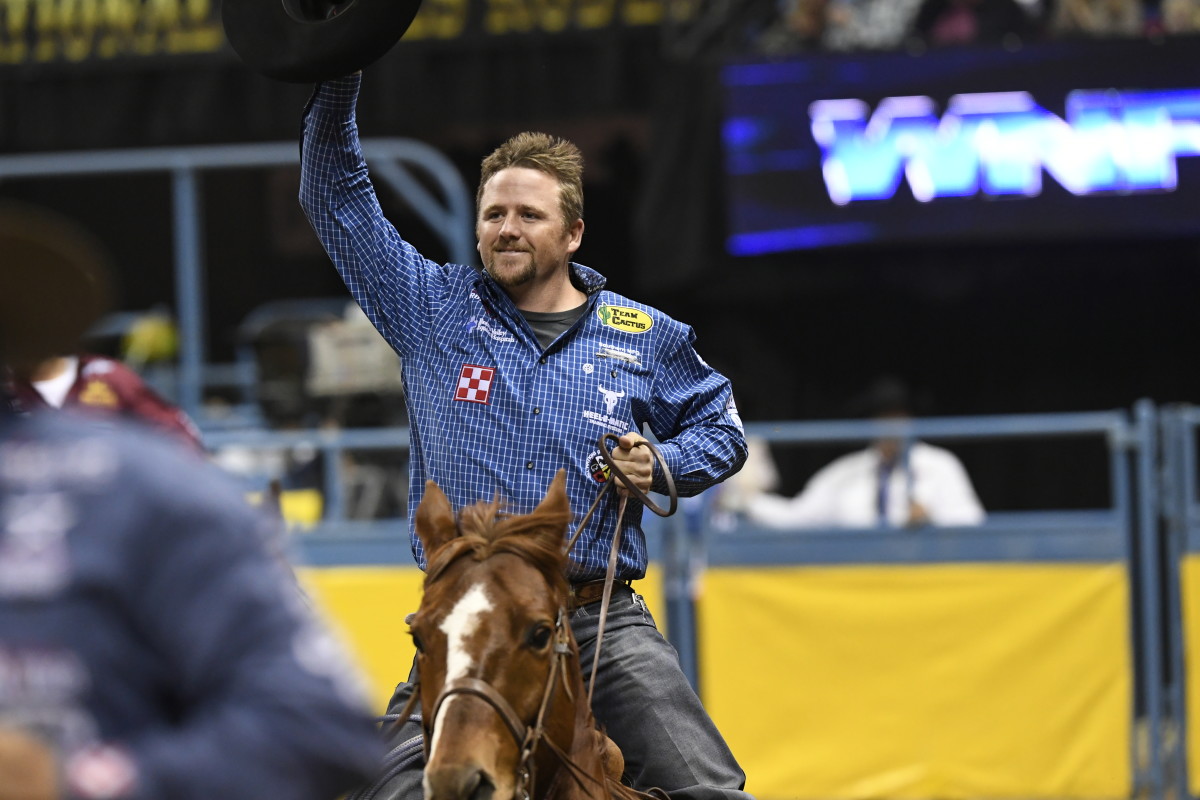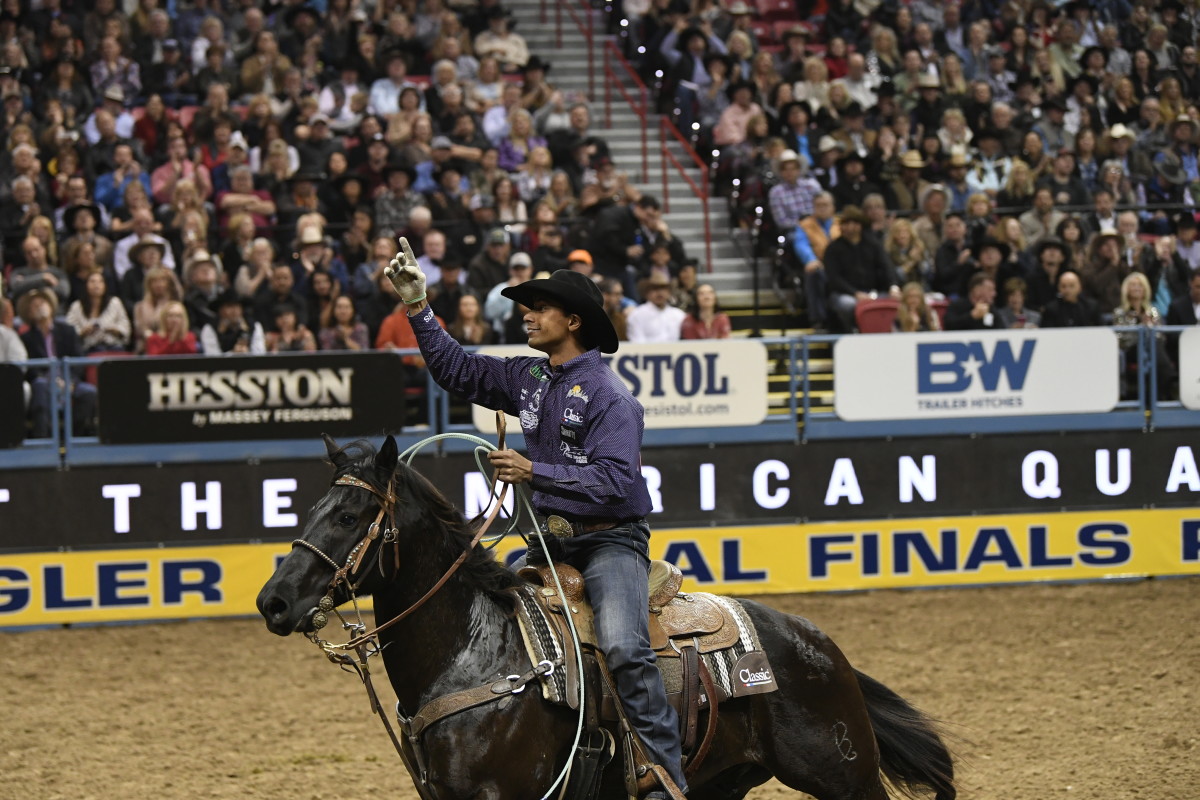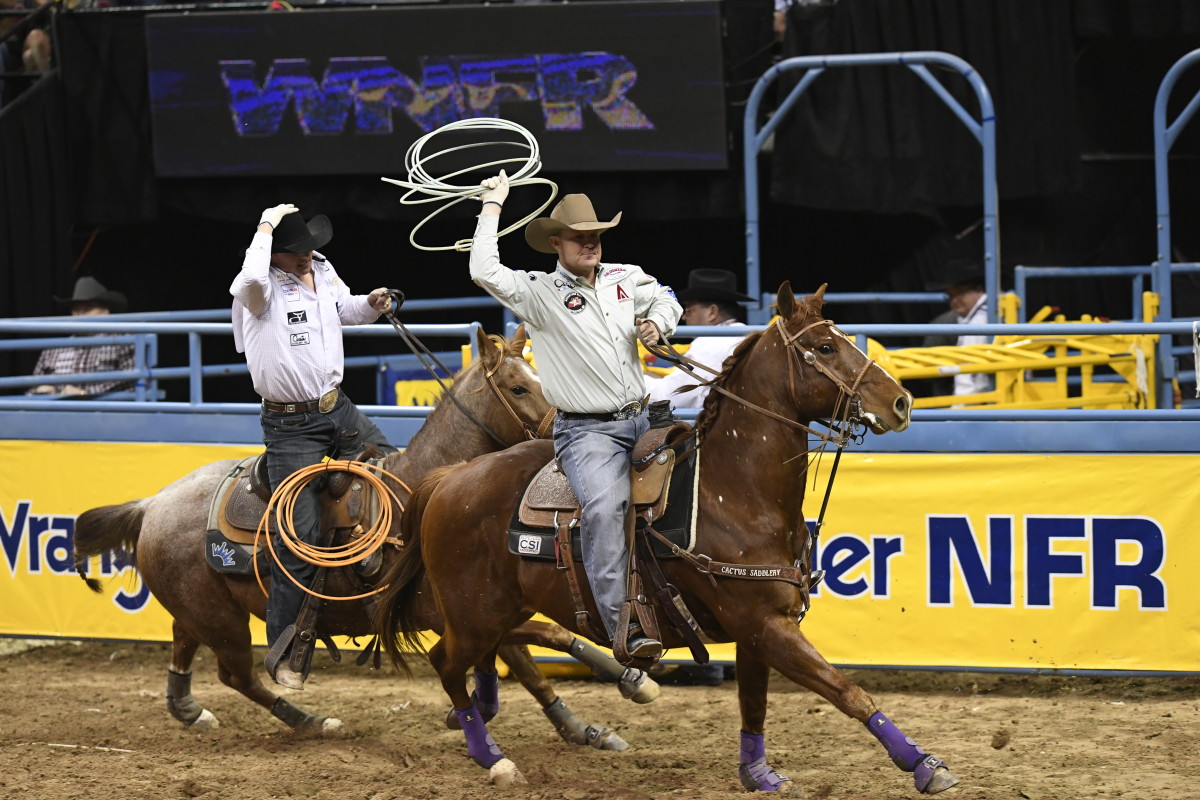As humans, we have a natural propensity to seek the cause for a given outcome; in other words, we automatically decide why we win or lose an event. In psychology, we call this your attribution. How you explain your performance significantly influences your emotional reaction to a win or loss, your expectations about future performance, and your motivation. This can be extremely helpful because we become more adept at replicating the conditions that led to wins and at minimizing circumstances that produced a loss. However, many people develop an attributional style that is flawed. This can result from our natural thinking styles that we are born with, how we have learned to view the world because of life circumstances, or some combination of both.
Attributions are created from a blend of beliefs about causality, stability, and control. First, causality is whether you believe you are the reason for your performance (internal cause) or something outside of yourself, such as your partner, horse, or draw, is what caused your go-round results (external cause). Second, stability is whether you believe what caused your results can be changed (stable cause) or not (unstable cause). Finally, control is whether you believe you can directly influence something to change (controllable cause) or not (uncontrollable cause).
[Shop: Mental Toughness]
Mind Gym: An Athlete’s Guide to Inner Excellence
The Winning Edge with Jake Barnes and Clay O’Brien Cooper
(As an Amazon Associate, we earn from qualifying purchases made through affiliate links.)
Intentionally using these three aspects to appropriately evaluate your performance allows you to have better emotional responses, make good decisions to improve performance, and keep your motivation high. While there is a plethora of situations that we make attributions about in a given day, let’s look at a few common attributional pitfalls in roping and discuss the most helpful ways you can change them.

WHEN YOU ARE WINNING
We all love being on a winning streak. Everything seems easy. Your horse is working to his maximum, you are in the zone, and your swing is perfect. It even seems as if the “cattle drawing gods” cannot phase you. However, being mindful of your attributions about winning can help prevent you from ascending into dysfunctional styles that have negative consequences.
The Smug Winner believes that a winning streak will go on forever (a stable cause) and that it is purely due to innate amazing roping ability (an internal, controllable cause). When you do this, you have a tendency to become boastful, brash, and take your performance for granted. This can result in alienating others around you. In addition, you are less likely to continue doing all the great work that led you to this position. This can look like practicing less or focusing on celebrating instead of taking top-notch care of your equine partners. No matter how many saddles are in your barn or how many buckles are stashed around your home, you are going to have bad performances. If you are a Smug Winner, you risk basing your self-esteem solely from your wins and are bound to have a fall from grace and struggle when those inevitable losses circle to you.
The Lucky Winner believes that winning is a result of good fortune (an external, unstable, uncontrollable cause). When you believe the majority of your performance is based on the stars aligning, you are constantly worried about when it will all fall apart. As discussed in previous articles, excess anxiety decreases performance and you risk stopping your winning streak simply because of your concern over keeping it going! In psychological terms, this is a self-fulfilling prophecy. You are also more likely to start trying to control the uncontrollable with unhelpful superstitions that only get in the way of real, helpful things that you could be doing to actually better your roping performance.
[Read: Heart of a Champion]
WHEN YOU ARE LOSING
The dreaded slump. We all experience it, but how we think about a miss, long time, or flub (or a string of bad runs), greatly influences our ability to rise out of it and return to the pay window.
The “I’m A Failure” believes there is something about him or herself that is solely causing bad performances (an internal, stable, uncontrollable cause). Mind you, I’m not talking about a realistic appraisal of whether you need to change something about your swing, throw, riding, etc., to improve your catch rate. Instead, it’s a belief that there is something fundamentally flawed about you that prevents you from improving. You are likely to start viewing yourself as a failure instead of seeing specific aspects of your roping or bad circumstances as the reason for the losses. When you do this, you believe there is nothing you can do to change your roping and you fail to put in the work to better yourself. Those who ascribe to this attribution are at great risk of quitting all together.
The Blamer believes that losing is always a result of consistently bad breaks (external, unstable, uncontrollable causes). You rarely take personal responsibility for your performance, and instead look for anything outside of yourself to blame for donating to the jackpot total. It’s the flagger’s fault, the draw was bad, your horse was not working, your partner is an imbecile, etc. As a result, you don’t work on improving yourself and have a difficult time upping your game. In addition, you are difficult for others to be around because blamers are often angry, irritable, and complain about anything they can find as a source for fault. Therefore, finding a solid, consistent partner to grow with as a team is extremely difficult.
The “The Universe Is Against Me” believes that some force (the universe, God, etc.) is keeping him or her down (an external, stable, uncontrollable cause). Those who fall into this tendency are similar to the Blamer, except the blame is isolated on one specific higher power rather a variety of external factors. You still believe that nothing you can do will change the outcome, but it feels as if you are being punished on purpose. This can result in feeling angry at the higher power to which you ascribe or feeling victimized; both have negative ramifications for your roping, your spiritual beliefs, and your world-view about non-roping aspects of life as well.
THE SOLUTION
The key to overcoming an unhelpful attributional style is to first become aware of whether this is a factor for you. It can be hard to acknowledge that you are a Blamer or a Smug Winner. Nevertheless, you will improve your chances of gold buckle dreams if you can admit shortcomings and make a conscious effort to overcome them. To transform these faulty attributional styles, you need to create a realistic appraisal of ALL of the factors that are contributing to your present roping and categorize each of them into the appropriate attributional aspects. As a reminder, these aspects are causality, stability, and control.

First, imagine that you are a scientist. Good scientists are not emotionally invested in the outcome of an experiment; instead, they are logical, reasonable, and are simply looking for the true cause of a given outcome. It is often helpful to have a trusted, experienced roper to help evaluate your performance by reviewing videos, letting you gain more emotional separation from your performance. Be careful to leave defensiveness at the door and enter into these conversations as learning opportunities instead of interpreting feedback in a personal or overcritical fashion.
Generally, we can allocate the following examples into internal versus external causality categories.
INTERNAL CAUSES:
YOUR SWING
YOUR RELEASE
YOUR RIDING
YOUR BODY POSITION
YOUR TIMING LEAVING THE BOX
YOUR MINDSET
YOUR FOCUS
EXTERNAL CAUSES:
FLAGGER REACTION TIME
STEER DRAW
PARTNER PERFORMANCE
HORSE PERFORMANCE
ROPE TYPE
TACK CONSIDERATIONS
ARENA CONDITIONS
[Read: Junior Nogueira’s Mental Edge]
[Read: Mastering Team Roping’s Mental Game]
Internal causes are best viewed as controllable. This means that YOU are in control of yourself at all times, whether you are winning or losing, and that you need to keep working hard to maintain or improve your performance. If you are winning, examine what you are doing well so that you can keep doing those same things without making any changes. This helps you to stay out of the Lucky Winner mindset because it reminds you that some factors are internal and controllable. If you are losing, look at what you can do differently to improve your roping ability and head to the practice pen.
In addition, it is typically best to view your behavior as unstable. In this context, behavior is referring to what you actually are doing as you rope. You need to make slightly different decisions and movements every time you leave the box, which allows for variability to adjust to circumstances. Believing a mistake in behavior is unstable allows you to do something different next time. However, it is also important to classify your overall positive personal characteristics as stable, particularly if you are prone to self-doubt. Are you a hard worker? Dedicated? Passionate? Driven? Reliable? All of these characteristics help you to be a better roper. Believing that your positive characteristics remain consistent across time, circumstances, and paycheck fluctuations will allow you to stay confident in your overall abilities even when you struggle with specific behaviors while roping.
External causes are best viewed as unstable. When you are winning, part of why you are winning is because the chips are falling well for you right now. Make sure to give appropriate credit to your partner, your horse, and circumstances. This will help to keep you out of the Smug Winner mindset. On the other hand, bad luck truly does exist in this game. We all get bad draws, slow flaggers, random horse trips, or partners having a bad day. If these are unstable, you believe that the next go-round will be different. You’ll draw a better steer, the flagger will be on his or her game, your horse will execute the perfect moves, and your partner will be on fire. Or not. Sometimes bad luck extends for a time, purely by chance. But believing that you always have an opportunity to have a good go the next time without these external factors influencing you unfairly will allow you to capitalize on better fortune when it presents itself. The best ropers learn to take advantage of optimal circumstances and deal as effectively as possible with less-than-desirable conditions.
External causes must also be split into realistic categories of being controllable or uncontrollable. Considering the above list:
EXTERNAL CONTROLLABLE:
ROPE TYPE
TACK CONSIDERATIONS
*PARTNER PERFORMANCE
*HORSE PERFORMANCE
EXTERNAL UNCONTROLLABLE:
FLAGGER REACTION TIME
STEER DRAW
ARENA CONDITIONS
*PARTNER PERFORMANCE
*HORSE PERFORMANCE
Some external causes are certainly under your control. If you need to invest in a different brand of rope, head on down to the tack store. If your breastcollar interferes with your horse’s movement or your saddle pinches, make some adjustments. Do what you need to do to change how these external factors influence your roping. However, other factors will never be something you can influence. For example, we all know weather is certainly uncontrollable…just think of how many would have loved to change Cheyenne Frontier Days’ weather this year! You also do not have magical powers to influence the cattle draw. Chalk it up to true bad luck and move on to the next roping.
Notice that I listed partner performance and horse performance under both controllable and uncontrollable external factors. There are so many considerations with these two aspects that a specific concern might fall into either category. For example, if your top-notch rope horse simply had a bad day and tripped, it was uncontrollable. Therefore, the best plan of attack is to take care of your trusty steed and assume it will have fancy footwork next time. There is nothing to change. However, if your head horse has started ducking off before you complete your throw, it’s time to head to the vet, practice pen, or both to identify the actual cause for the change in behavior. Similarly, your partner will miss from time to time. If it’s an isolated incident, give him or her some grace and understanding knowing that your partner will have to be patient with you for a miss at some other point in time. Conversely, if your partner is making consistent mistakes it might be time to sit with him or her to review video and offer some feedback about how your partner can improve. At times, it might also be necessary to change partners depending on circumstances.
After considering all of these attributional aspects and appropriately and realistically categorizing them, it’s time to take action. For all of the aspects that are actually internal or controllable, do what you need to do in order to improve or maintain high performance. For everything left that is actually external or uncontrollable, practice acceptance (and gratitude when things are going well), focus on the other things that you can actually control, and move forward knowing that you will have different circumstances the next time you back into the box.
Regardless of your natural thinking style, remember that the most helpful attributions possible allow you to take advantage of each performance to improve emotional responses, cultivate motivation, target helpful preparation plans, and increase the chances of performing well next time. If you are accomplishing this, you are one step closer to glory, saddles, and paychecks.
Be patient with yourself and the process. Remember that the best ropers in the business are working at it every day, too.

Dr. Kathy Korell-Rach is a licensed Clinical Psychologist and Life Coach and owns Country Counseling, LLC. For more information, see her website at countrycounselingllc.com. She competes for Bar Three Stables by running homegrown horses sired by nationally ranked barrel horse sire Smoke N Sparks. See more at smokensparks.com.
Disclaimer: This information should not be considered a therapeutic intervention and no client-therapist relationship is established by reading this article.










